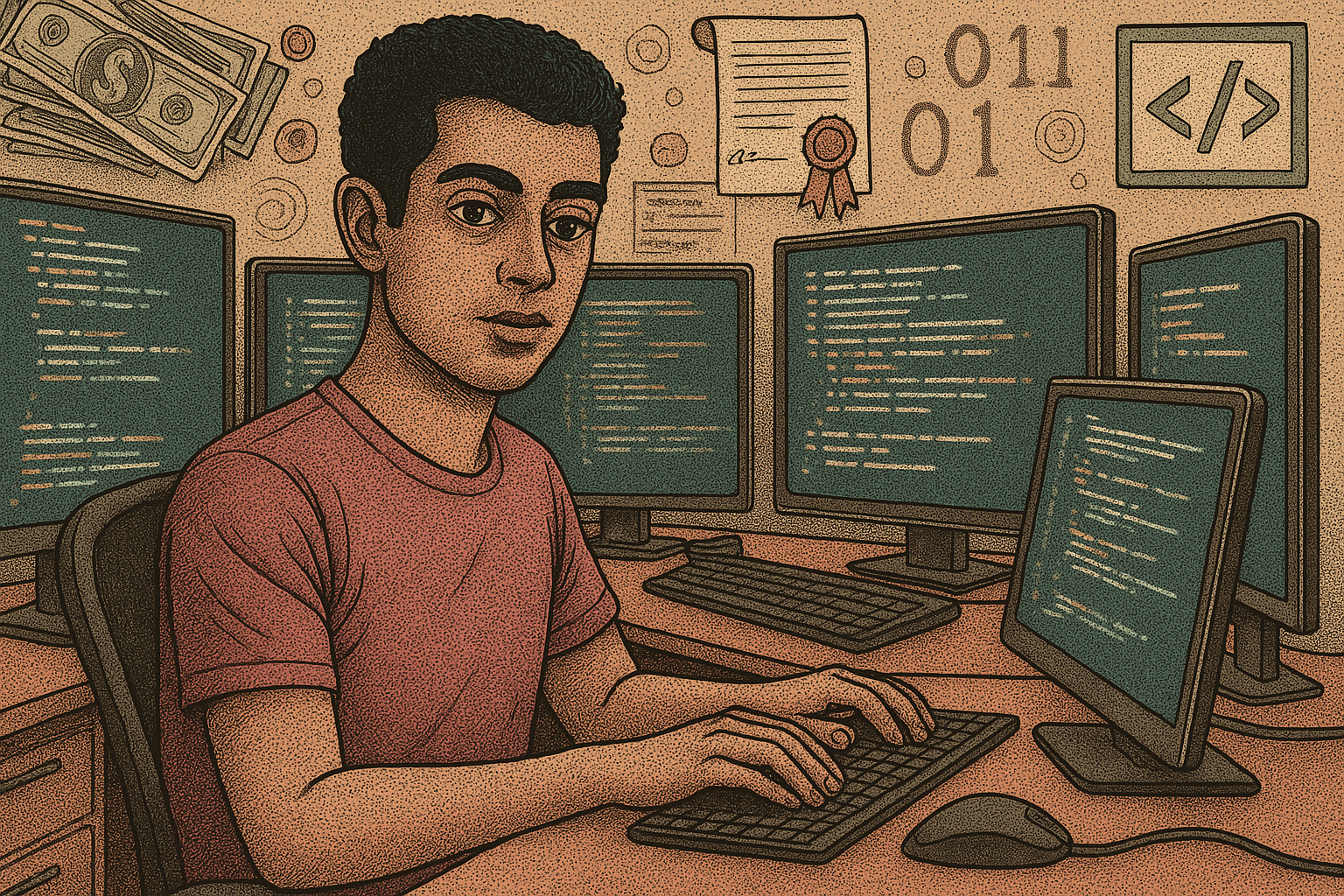Silicon Valley’s love affair with remote hiring is under fresh scrutiny this week after a bombshell revelation involving Soham Parekh, an India-based software engineer accused of secretly holding down multiple jobs at once, many at prominent U.S. startups.
The saga erupted after Suhail Doshi, CEO of AI image generator Playground, sounded the alarm on social media.
PSA: there’s a guy named Soham Parekh (in India) who works at 3-4 startups at the same time. He’s been preying on YC companies and more. Beware.
I fired this guy in his first week and told him to stop lying / scamming people. He hasn’t stopped a year later. No more excuses.
posted on X Suhail Doshi, the CEO of Playground, triggering a wave of founders coming forward with similar stories.
The fallout has exposed not just the audacity of Parekh’s scheme, but also a broader tension simmering in the U.S. tech scene: while millions of Americans struggle to find jobs, especially in the competitive engineering sector, startups are increasingly bypassing local talent in favor of cheaper, remote workers abroad. Critics say that approach, though cost-efficient, is eroding trust in both remote work and the fledgling “work-from-anywhere” culture.
A Pattern of Deception
Founders from across the startup ecosystem, including AI workflow company Lindy, cloud management startup Antimetal, and AI lip-syncing platform Sync Labs have all confirmed hiring and later firing Parekh after discovering he was moonlighting at multiple companies. His resume, technical skills, and polished interview performance allowed him to land roles repeatedly, despite raising red flags along the way.
Holy shit. We hired this guy a week ago. Fired this morning. He did so incredibly well in interviews, must have a lot of training. Careful out there.
posted Flo Crivello, the CEO of Lindy, who admitted to firing Parekh shortly after Doshi’s public post.
Funnily enough, Soham was our first engineering hire in 2022
Really smart and likable; enjoyed working with him
We realized pretty quickly that he was working at multiple companies and let him go
I can’t imagine the amount of equity he’s left on the table
posted Matt Parkhurst, the CEO of Antimetal.
In one particularly revealing incident, engineers at YC-backed Reworkd set up an IP tracker during a Zoom call with Parekh, only to confirm he was dialing in from Mumbai, not the U.S., as he had claimed.
The Remote Work Dilemma
While Parekh’s tactics have made him a lightning rod for criticism, some argue that the real problem lies with the system that enabled him.
Over the past few years, U.S. companies have increasingly turned to international remote hires to fill technical roles. It’s a trend driven by tight labor markets, high salaries, and the global hunt for talent. But as the Parekh scandal shows, that strategy comes with risks: looser oversight, falsified work histories, and eroding accountability.
And it’s not just tech companies. Non-technical businesses, from real estate to retail to furniture companies, have also embraced global remote hiring as a way to cut costs. Operations, logistics, and customer service roles that once provided stable jobs to U.S. workers are increasingly off-shored to cheaper labor markets like India. It’s become common for companies to hire remote employees for daily administrative tasks, further fueling frustration among domestic job seekers.
Indeed, the U.S. unemployment rate among tech workers has ticked up in recent months, as waves of layoffs at big firms like Google, Meta, and Amazon have flooded the job market with experienced engineers. Many of them now face an uphill battle, competing not just with each other, but with a global talent pool operating behind a screen.
Parekh Speaks Out
In a recent interview with the Technology Business Programming Network (TBPN), Parekh admitted to juggling multiple startup jobs since 2022. He claimed financial hardship drove his decision and denied using AI tools or subcontractors to manage his workload. He also insisted he wasn’t proud of his actions and doesn’t condone them.
Despite his apparent remorse, some suspect there’s more to the story. Doshi circulated copies of Parekh’s resume listing a master’s degree from Georgia Tech, a credential that has yet to be verified.
something weird about when we offered soham…
he was very pro-equity vs salary
like dramatically so
maybe because he knows that’s what founders wanna hear?
but it doesn’t fit with trying to earn as much money as possible if he knows he’s gonna get fired shortly after
i think the spying / ip theft theory is looking more likely
posted Haz Hubble, the Founder of Pally.
Adding another twist, Parekh announced he had landed a new full-time role at Darwin Studios, an AI video remixing startup. Darwin CEO Sanjit Juneja confirmed that.
Rebuilding Trust in Remote Work
The incident underscores a growing reputational crisis for remote work culture. Once celebrated for breaking down geographic barriers and democratizing opportunity, remote hiring is now tangled with stories of fraud, deception, and regulatory gaps.
For U.S. based job seekers, especially in South Florida, the situation is doubly frustrating.
There’s real talent here in South Florida, but companies, whether they’re building AI or selling furniture, are chasing a global hiring strategy that, frankly, feels like cutting corners
said one South Florida founder, who requested anonymity to avoid blowback.
As the Silicon Valley echo chamber debates whether Parekh is a fraudster, a hustler, or simply a product of a flawed system, one thing is clear: the future of remote work and the trust underpinning it may hinge on how seriously startups take hiring transparency going forward.
